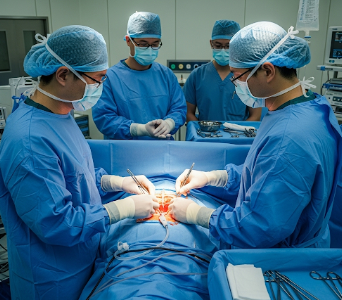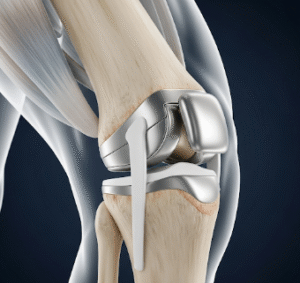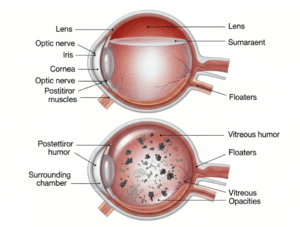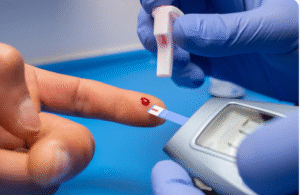Overview
Heart surgery, also called cardiac surgery, encompasses a range of procedures aimed at correcting heart conditions, improving cardiac function, and saving lives. It is often required for patients with coronary artery disease, heart valve disorders, congenital heart defects, or arrhythmias.
South Korea is known for its highly advanced cardiac centers, experienced cardiothoracic surgeons, and cutting-edge technology. International patients frequently choose Korea for complex heart procedures, such as coronary artery bypass grafting (CABG), valve repair/replacement, and minimally invasive heart surgeries.
What is Heart Surgery?
Heart surgery involves surgical intervention on the heart or major blood vessels to restore normal function and prevent complications. Common types include:
- Coronary Artery Bypass Grafting (CABG) → Improves blood flow to the heart muscle
- Valve Surgery → Repair or replacement of malfunctioning heart valves
- Congenital Heart Surgery → Corrects structural heart defects present from birth
- Minimally Invasive Heart Surgery → Uses small incisions for faster recovery and reduced scarring
- Heart Transplant → Replacement of a severely diseased heart with a donor organ
Korean hospitals employ state-of-the-art operating theaters, robotic-assisted techniques, and hybrid procedures for optimal outcomes.
What are the Benefits?
- Restored heart function and improved blood circulation
- Relief from symptoms such as chest pain, shortness of breath, or fatigue
- Reduced risk of heart failure or sudden cardiac events
- Minimally invasive options → smaller scars, less pain, and faster recovery
- World-class cardiac care with internationally trained surgeons
- Long-term improvement in quality of life and longevity
Procedure Details
1) How should I prepare for Heart Surgery?
- Comprehensive evaluation → Blood tests, ECG, echocardiogram, CT/MRI, and cardiac catheterization if required
- Medication review → Adjust or stop anticoagulants, anti-inflammatory drugs, or other prescriptions
- Lifestyle modifications → Stop smoking and maintain a healthy diet pre-op
- Pre-operative consultation → Discuss surgery type, expected outcomes, risks, and recovery plan
- Fasting instructions → Typically required before anesthesia
2) What happens during the procedure Heart Surgery?
- Anesthesia → General anesthesia administered by a cardiac anesthesiologist
- Surgical access → Median sternotomy (chest opening) or minimally invasive incisions depending on procedure
- Heart-lung bypass → Often used during CABG or valve surgery to maintain circulation while the heart is operated on
- Procedure-specific steps →
- CABG → Bypass blocked coronary arteries with grafts
- Valve repair/replacement → Correct or replace faulty valves
- Congenital repair → Correct structural defects in children or adults
- Closure → Sternum and chest layers sutured; drainage tubes placed if needed
- Duration → 2–6 hours depending on complexity
3) What happens after a Heart Surgery?
- ICU monitoring → First 24–48 hours with continuous cardiac monitoring
- Pain management → Intravenous or oral analgesics
- Gradual mobilization → Physical therapy starts to improve circulation and lung function
- Post-op medications → Anticoagulants, beta-blockers, or other heart medications as prescribed
- Follow-up visits → Echocardiograms, blood tests, and lifestyle counseling
Risks / Benefits
Risks
- ➤ Bleeding or infection at surgical site
- ➤ Arrhythmias or irregular heartbeat
- ➤ Heart attack or stroke (rare)
- ➤ Reaction to anesthesia
- ➤ Blood clots or pulmonary complications
- ➤ Rare complications such as organ dysfunction
Benefits
- ➤ Restoration of normal heart function
- ➤ Reduced symptoms of heart disease
- ➤ Prevention of long-term cardiac complications
- ➤ Improved survival rates with advanced surgical techniques
- ➤ Minimally invasive options for faster recovery
Recovery and Outlook
- ICU stay → Usually 1–3 days post-surgery
- Hospitalization → 5–10 days depending on procedure type and recovery
- Activity resumption → Light activities after discharge; full physical activity gradually over 6–12 weeks
- Long-term care → Lifestyle modifications, medications, and regular check-ups to maintain heart health
- Prognosis → Excellent in Korea’s top cardiac centers, with high survival rates and long-term improvement in quality of life
South Korea offers comprehensive cardiac rehabilitation programs, including diet, exercise, psychological support, and monitoring to ensure optimal recovery and longevity.
When To Call the Doctor
Seek immediate attention if you experience:
- ⚠️ Chest pain or pressure
- ⚠️ Shortness of breath or difficulty breathing
- ⚠️ Irregular heartbeat or palpitations
- ⚠️ Fever, redness, or discharge from surgical site
- ⚠️ Swelling in legs or sudden weight gain
- ⚠️ Dizziness, fainting, or extreme fatigue
Best Korea Option / Process
South Korea is a world-leading destination for heart surgery due to:
- Highly trained cardiothoracic surgeons with international expertise
- State-of-the-art operating rooms and ICU facilities
- Advanced minimally invasive and robotic-assisted techniques
- Comprehensive pre- and post-operative care
- Affordable costs for high-quality cardiac care compared to Western countries
- English-speaking staff and international patient coordinators
Leading Hospitals for Heart Surgery in Korea:
- Asan Medical Center, Seoul – Premier cardiac surgery and interventional cardiology center
- Seoul National University Hospital (SNUH) – Expert congenital and adult heart surgery
- Samsung Medical Center – Advanced minimally invasive and robotic heart surgeries
- Yonsei Severance Hospital – Comprehensive cardiac care and rehabilitation
👉 For patients with coronary artery disease, valve disorders, or congenital defects, Heart Surgery in Korea offers safe, advanced, and effective solutions with world-class outcomes.













